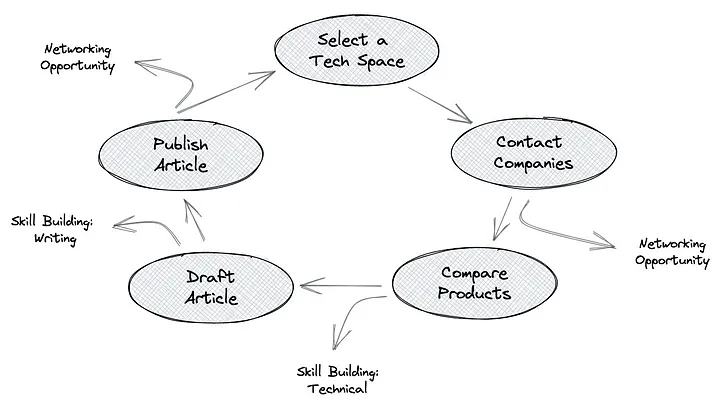A year ago, I found myself at a crossroads. After twelve years helping my company grow from 100 employees to 4,000, I felt stuck. My resume was out of date, my LinkedIn network was largely dormant, and I had no visible way to showcase my leadership skills. Fortunately, one bold decision—to start writing—transformed my outlook, recharged my career prospects, and taught me lessons I wish I’d learned sooner. Here’s what I discovered along the way.
Career Lessons for Every Professional
- Cultivate Your External Network, Even When You’re Happy
It’s tempting to focus solely on today’s to‑do list, but tomorrow’s opportunities often come through connections you’ve nurtured in the past. When I dusted off my eight‑year‑old resume, I realized how few relationships I’d maintained outside my company. No wonder my initial LinkedIn outreach went unanswered. Had I kept in touch—with former mentors, peers, and industry friends—my job search would have felt less like shouting into the void. - Build a Public Portfolio While You’re Employed
Prospective employers want proof, not promises. My mentor pointed out that I needed a “brand”—tangible artifacts that recruiters and hiring managers could review at their leisure. Open‑source code on GitHub, conference presentations, or published articles all serve this purpose. Conference talks felt out of reach, and my GitHub was dusty, but starting a blog was immediate, free, and under my control. - Seize the Moment to Showcase Your Expertise
Don’t wait for free time or an unemployment gap to create your body of work. When you’re actively employed, you have access to real‑world projects, data, and challenges. I began chronicling infrastructure best practices drawn from my day‑job experience—topics like disaster recovery planning and log monitoring. Those posts might not have gone viral, but they were honest, valuable contributions that I could link to in job applications. - Grow Your Skills One Hour at a Time
Tackling a large goal—writing a comprehensive technical deep‑dive or preparing a conference talk—can feel daunting. Instead, I committed to 30 minutes of writing each evening. Over months, those small blocks of time added up, and I met my goal of one blog post per month. Incremental progress is sustainable progress.

Writing Lessons for Aspiring Bloggers
- Your Experiences Are Worth Writing About
If you’ve spent even a decade in your field, you possess a wealth of insights. Infrastructure design, team leadership, product evaluations—none of it is “too niche.” My first ten posts, rooted in my core expertise, felt satisfying even when they garnered few readers. They were the scaffolding of my portfolio. - Bold, Honest Evaluations Attract Attention
After establishing a foundation of best‑practice articles, I experimented with opinionated product comparisons—for example, “Four Alternatives to Terraform Enterprise” or “The Top Eight Kubernetes Providers.” These posts resonated because readers crave unvarnished perspectives. Plus, the companies I championed shared my content with their audiences, amplifying my reach. - Maintain a Backlog of Quick Articles
Research‑intensive deep dives can take 40–60 hours (and sometimes cost real money in hosting fees). To avoid missing months, I stockpiled shorter pieces—lists, tips, mini‑tutorials—that I could polish and publish on slower days. This “reserve supply” ensured my blog never went dark. - Write for Yourself First
The most sustainable motivation came from personal enjoyment. I discovered that winding down with a glass of Scotch and tapping out a few hundred words felt more rewarding than frantic, deadline‑driven churn. When writing becomes a pleasure rather than a chore, consistency follows naturally.
From Blog Posts to Career Momentum
Armed with a year’s worth of published posts, I relaunched my job search. The effects were immediate: recruiters cited my blog in initial conversations, and I was invited onto podcasts like Cybersecurity Distilled. Sponsors and founders began seeking my input on their products, and I even picked up light consulting gigs. Today, as Director of Infrastructure at a drone‑technology firm, I still write—and still learn—one evening at a time.
A Roadmap for Your Writing Journey
- Identify Your Niche: Reflect on your career highlights. What challenges have you solved? What tools do you understand inside out?
- Set a Realistic Cadence: Start with one post per month. Build confidence before raising the bar.
- Stockpile Short and Long‑Form Content: Alternate quick tips with in‑depth guides or product surveys.
- Share Generously: Reach out to companies you cover. Offer to link to their site or interview them for quotes. Many will amplify your article.
- Keep It Enjoyable: Find the writing ritual that works for you—your favorite beverage, a cozy spot in the house, or a playlist that sparks creativity.
One Year Later
Looking back, I’m grateful I embraced writing not as a fleeting experiment but as a strategic career lever. The path wasn’t always smooth—there were nights when words wouldn’t come, and times when metric‑chasing felt disheartening. But the lessons I learned—about networking, portfolio building, disciplined habits, and writing for joy—have lasting value.
If you’re on the fence about starting a blog or putting your expertise on display, remember: every great story begins with a single sentence. Take that first step. Your future self (and your next employer) will thank you.


